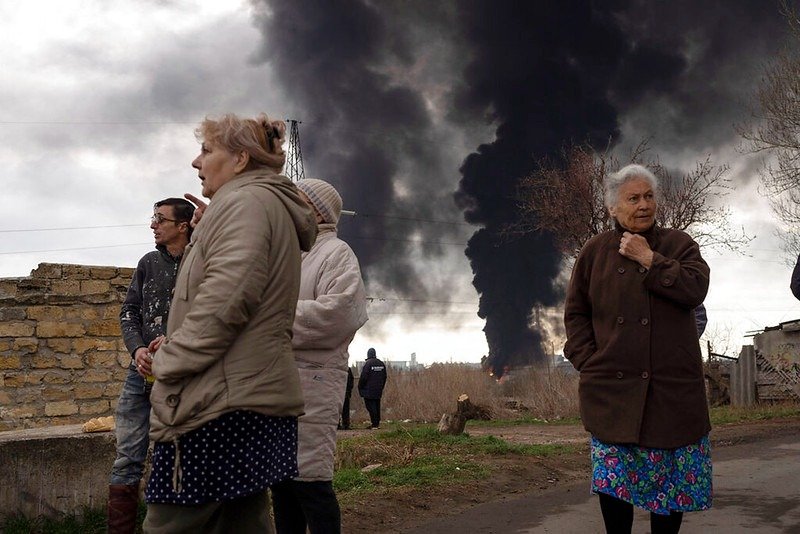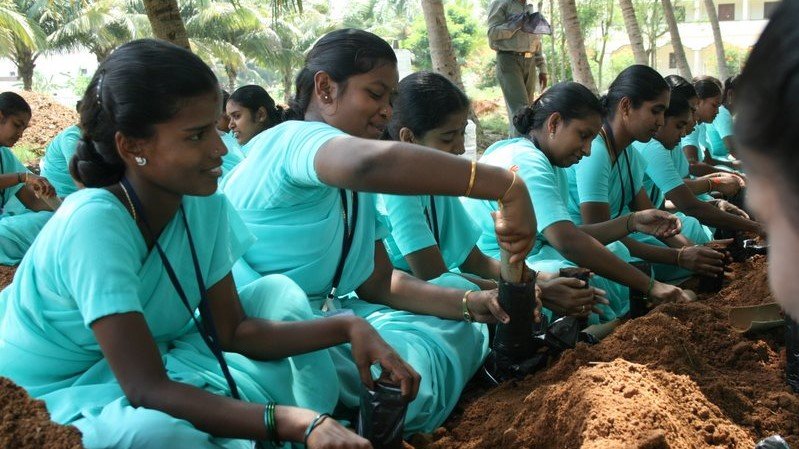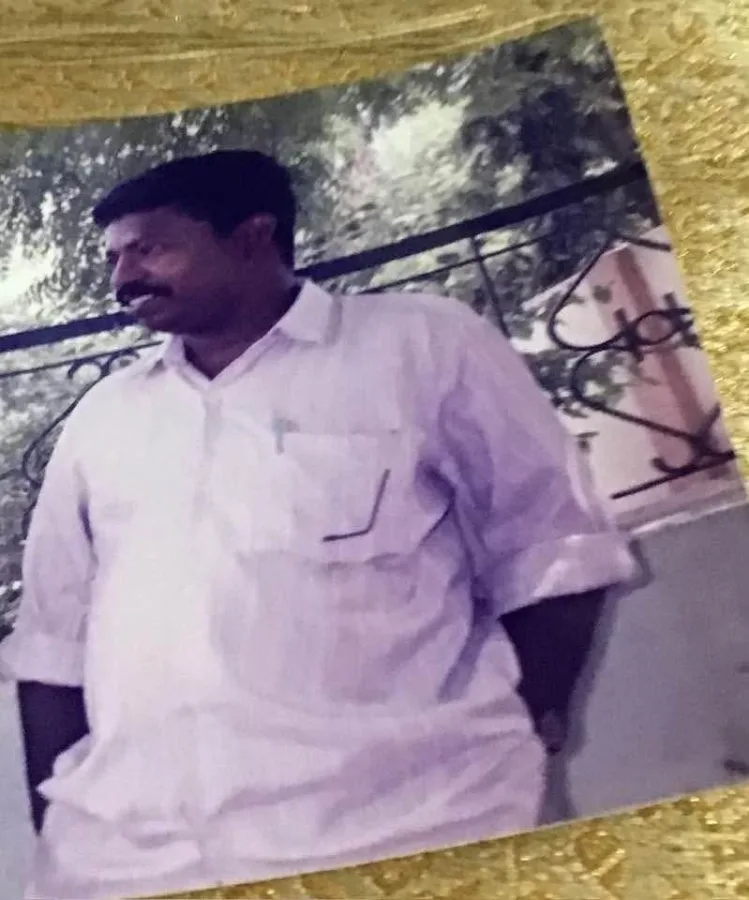Read in : தமிழ்
Is the world on the brink of a recession? Will what happened in Sri Lanka and elsewhere happen in other countries also? Recent reports of shortages in petrol bunks in India have only strengthened these fears among the common people that economists have been talking about for some time. ( Click here and here to read more)
Arun Kumar, noted economist who intervenes in public debates on economic policy, explained to inmathi.com the various factors and how India can possibly respond. Arun Kumar, presently the the war in Ukraine will play a big role in how things pan out. He stresses the need for a course correction by the Indian government to intervene and put money in the hands of the poorer folk by supporting micro industries, job guarantee schemes and support investment in decentralized project that are labour intensive.
Below is a summary of what he said.

Arun Kumar, presently the Malcolm Adiseshiah Chair Professor at the Institute of Social Sciences
Global situation
The Ukraine war that is taking place is a proxy war between two big blocks. It’s between Russia, a big power and Ukraine, a much smaller country, backed by NATO and the US. Though Russia’s attack on Ukraine is obvious to the world, the attack on Russia, via sanctions by the western powers, is not.
To top that off, these western powers are also looking to embroil Russia in this conflict for the longer run. This, combined with NATO’s expansion also poses a threat to Russia.
Other than this, China is another country that has been facing issues with the western world. From increased tariffs on their products from the time of the Trump government to the US looking to manufacture products locally, it too is finding itself cornered. Thus there are two blocks; the one the rich western countries and the other consisting of Russia and China. This, in turn, will emerge as a cold war soon.
The Cold War that started in 1947 was a war between two ideologically different blocks; the capitalists and the socialists. This time on though, both the blocks are capitalist blocks, looking to hegemonize globally.
Because of the Ukraine war, now there will emerge two separate blocks of trade, technology and finance.
Because of this war, however, now there will emerge two separate blocks of trade, technology and finance. With the sanctions posed by the US, especially the financial ones, on the Russia-China block, this is the only option that seems plausible at the moment.
China’s interest obviously lies with Russia, so their trade with the other parts of the world will be affected because of these sanctions. As a result of all this, major financial and trade difficulties are en route, globally.
Both Russia and Ukraine are suppliers of some major commodities and products to the world. Russia supplies major items like oil, gas and wheat to the world and Ukraine, apart from wheat, is also a supplier of sunflower oil and fertilizers to the world.

Russia Ukraine War- after shelling in Odessa (Photo Credit by manhai – Flickr)
Both these countries are also suppliers of some important minerals. Palladium and neon gas from Russia are important exports. Neon gas forms a major part of the electronic chip manufacturing process, the kind that runs our mobiles and cars. As a result, the prices of energy supplies, metals, food products and fertilizers have gone up with little respite in sight as the war seems like it will persist.
In the US inflation is seeing a 40-year high and in India, the wholesale price index has gone up by 10%. The consumer price index too has gone up 6%, which has been the RBI’s tolerance limit, for more than four months now.
China’s severe lockdown during Covid waves is causing supply bottlenecks. Apart from this, because of the container shortage, the shipping prices have gone up leading to an increase in inflation in India and globally. This is leading to the purchasing power of common people going down, as their incomes don’t rise. The pandemic has also caused a double whammy with wage cuts and unemployment.
Also Read:
Medical education abroad an ordeal, and for students now in Ukraine a nightmare
Sri Lanka govt approaches IMF, but loans will be bitter pill
The Middle East exhausted their savings during the delta wave and with the increase in black marketing of supplies like oxygen.
With the consumer sentiment staying stagnant, the demand will remain low, leading to investments suffering and the growth potential dwindling. All of this combined only points toward a crisis on both the global as well as the local front for India.
How will Russia respond? Russia [a big supplier of fuels and commodities] has a huge trade surplus with many countries. Russia will try to keep supplying these. And Russians will simply take over western companies operating in Russia that shut down. McDonalds is, for instance, now a Russian operation and run by Russians.
War is futile. Cities are getting devastated. For the power game of the superpowers, people are suffering.
Let Ukraine be neutral. Then Russians will withdraw and the war will end. But we need some statespersons who can make this happen. The war is not good for anybody.
How is India placed?
India is in a tough situation because of the defence agreements that we have signed with Russia. That country still is responsible for 60% of our armament supplies and we need materials for our Sukhoi aircraft, for instance, which we are making but under license from them.
With China at the border, we need all the help we can get. India depends both on the west and the Russians when it comes to helping with defending the country. Because of this dependence on both, India is not taking any sides, isn’t being critical of Russia’s actions and is staying neutral. We are playing the middle ground which could result in a decrease of trust on the country as a whole.
The US will not see us as a reliable partner when it wants help or support from us against China. To top this off, there are chances of China pressuring Russia to reduce armament and supplies to the country. Our advantage at the moment, with Russia being sanctioned, is Russia is supply petroleum for cheap and $25 below the pre-war price. So India has ended up importing a lot of oil from the country.
Right now, another issue that is plaguing us is conflict at our borders. Our defence expenditures could go up if China decides to add pressure, seeing India weakened. As a result of this, expenditures on the development of the country will go down considerably. Budgetary crises could arise if our economy slows down our revenue collection will come down.
Course correction
Our growth rate was already falling prior to the emergence of the pandemic from 8% to 3.1%. This was because of the shortage of demand due to inequalities in the economy where the unorganized sector was the worst affected.
The rich got richer and the poor got poorer. This is why my argument is that we should count the unorganized sector independently in the GDP data. An assumption is made that both the unorganized sector and the organized sector are growing at the same rate. However, this does not hold true. With the effects of demonetization and the introduction of the GST, the unorganized sector has been hit hard.
Our economic growth rate was falling before the pandemic. Our growth rate had fallen from 8 percent to 3.1% over eight quarters because demand was short. Unorganized sector was getting hurt. Inequality was increasing. That remains. A survey in January of this year showed that during the top 20% gained income while the bottom 60% had lost.

Women from a self-help group at a nursery in Tamil Nadu (Photo Credit: Project Greenhands- Flickr)
The unorganized sector has been particularly hit by GST, demonetization, the NBFC crisis and so on: Four big shocks in five years. Their growth is 0%. Indian economy is hurting badly.
We have lumped together Micro, Small and Medium enterprises. But we have 6 crore micro and 6 lakh small and medium. Any policy benefits small and medium much more than micro sector. The 97.5% of the MSME which is the micro sector has declined.
The government should put money in the hands of the unorganized sector, micro sector. Rural employment guarantee schemes should be strengthened
Labour force participation has fallen from 46% in 2015-16 to 40%. This means more people in the 15 to 64 age group have left the labour force because of lack of jobs. Already, the 46% was quite low. In China and Brazil, it is 60%. Most of these people are employed in the unorganized, non-agricultural sector which is the micro sector. The micro sector requires support.
The government should put money in the hands of the unorganized sector, micro sector. Rural employment guarantee schemes should be strengthened. Urban jobs scheme should be started. Decentralized projects on education, health, drinking water should be taken up.
The government has promoted investment in big centralized projects such as highways. These are automated big projects. Five or ten people with big bulldozers work on highway projects instead of in the past when big projects used to employ lots of people.
Rather than give concessions to corporate sector this should happen. When corporate tax rate was sharply cut in 2019, instead of investing, the corporates got rid of the debt but haven’t increased capital investment. Only in telecom, IT there has been more investment but not in the economy as a whole. Micro sector is crucial since it generates demand.
Read in : தமிழ்











